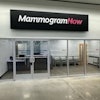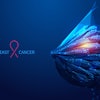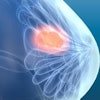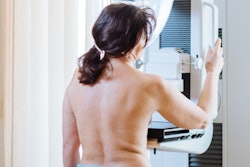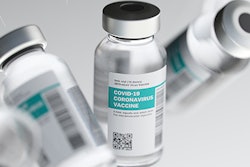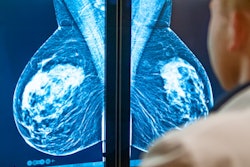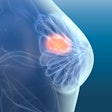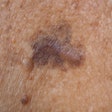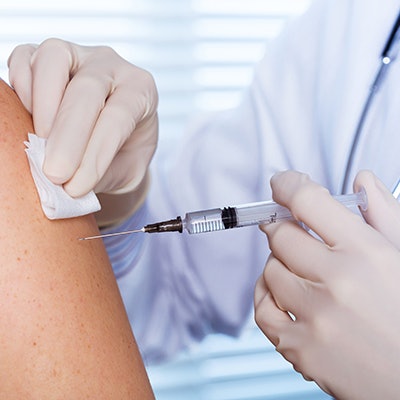
Swollen lymph nodes developed in breast imaging patients in Israel shortly after they received COVID-19 vaccines, but that may not be reason to worry, according to research published June 10 in Academic Radiology.
A team of researchers led by Dr. Renata Faermann from the Sheba Medical Center in Israel found that axillary lymphadenopathy attributed to COVID-19 vaccination was found in 163 people, which consisted of women undergoing breast imaging, including BRCA gene carriers, and medical staff members.
While lymph node size decreased for many patients, the sharp increase in patients who presented at breast imaging clinics with axillary lymphadenopathy affected workload.
"We had an increase of 394% of axillary lymphadenopathy in comparison to the same period of time in the previous years," Faermann told AuntMinnie.com. "It means we saw many patients during the day with axillary lymphadenopathy and had to decide if it was due to the vaccine, or it could be metastatic breast cancer [in the worst-case scenario]. If we would send all of them for biopsy or follow up, it would have been unnecessary."
Swollen lymph nodes have been reported as a side effect of the COVID-19 vaccine around the world. Experts say while swelling should go down after a short period of time, patients should come back after about three months if progress is not made. Faermann said the Sheba Medical Center recommends deferring breast imaging for six to eight weeks after vaccination, if possible.
In Israel, Faermann and colleagues noted that an "unusual" increase in axillary lymphadenopathy was seen in patients in January who received the Pfizer-BioNTech COVID-19 vaccine.
"There was a concern, especially in those patients that were vaccinated in the ipsilateral arm of their past or current breast cancer," Faermann told AuntMinnie.com. "Very soon we realized that lymphadenopathy was probably due to vaccination since we also examined the staff that had also been vaccinated."
The team looked at 107 women who were non-BRCA carriers undergoing breast and axillary ultrasound, 12 medical staff members, and 44 BRCA carriers who underwent breast ultrasound, mammography, or breast MRI.
In all participants, postvaccination lymphadenopathy was not present on previous breast imaging of the same participant and limited to the ipsilateral axilla of the vaccinated arm.
The team found increased cortical thickness of abnormal lymph nodes and longer lymph node diameter in patients and medical staff who received the second dose of the vaccine.
"The reassuring feature of this radiological phenomenon is that it is self-regressing as shown by the limited follow up in the present study," the authors wrote.
The team said that asymptomatic vaccinated women with ipsilateral axillary lymphadenopathy as the only abnormal finding "probably" do not need radiological follow-up. Although BRCA gene carriers are at higher risk for breast cancer, they should "probably" receive the same management as average-risk patients, the researchers wrote.
Faermann said the team is looking for the correlation between axillary lymphadenopathy and serology, which was seen in "a few" women in the study.
She also said she tells patients swollen glands are a normal finding due to inflammation and that it will take a few weeks to resolve.
"I also tell them that we examined our staff and we all had the same findings, that we are aware of this effect and there is no concern as long as there is no suspicious finding in the breast and the patient has had a vaccine recently in the ipsilateral arm," Faermann told AuntMinnie.com. "Patients that had previous or current breast cancer and lymphadenopathy in the ipsilateral arm may have to undergo a biopsy or follow-up."
